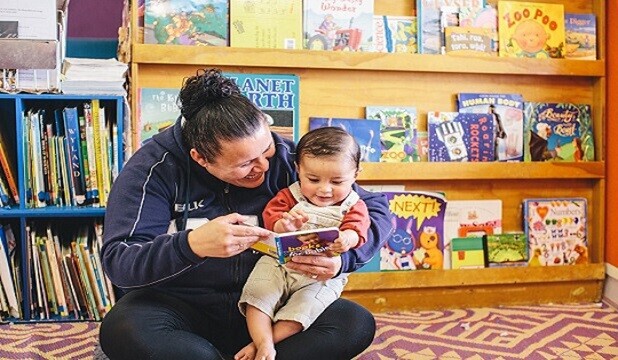We’re exploring ways that we can support efforts to address poverty and inequality in Aotearoa New Zealand.
Our Fairer Futures change initiative supports community-led action to shift the social and economic conditions contributing to poverty and inequality in Aotearoa New Zealand and to enhance opportunities for children and whānau to reach their aspirations.
Poverty and inequality in Aotearoa New Zealand are confronting and complex issues. To understand them better, we’re taking a systems change approach, which involves trying to understand and shift the conditions that are holding poverty and inequality in place. We’ve also been asking: How can we, as a funder, do a better job of supporting communities to address these issues and to achieve longer-term social change?
Over the last 30 years, New Zealand has gone from being one of the most equal to one of the most unequal countries in the OECD. The cost of living (rising food and transport costs, and especially housing) have outstripped benefits and wages; work for many is more precarious; and 50% of the population own just 2% of the nation’s combined savings, property and assets.
The pressures of living in hardship reduce people’s capacity to plan, save and get ahead, and the associated toxic stress can harm family relationships and interfere with healthy child development. This can cause negative outcomes that compound across generations. While families and communities try to do their best for their children, factors largely beyond their control are preventing too many children from reaching their full potential. An example is the rapid rise of the cost of housing (both to buy and rent).
We have discovered that the policies of successive governments over the last 30 years (such as the benefit cuts of 1991) and global economic trends are linked to the rise of poverty and income inequality. However, the other side of the coin is that government policies (such as those that raise family income levels) are powerful levers for change.
Community leading the way
Positively, innovative community-led initiatives are strengthening supportive connections between people, helping children and families to overcome many of their challenges, while reducing their levels of stress, and helping them access opportunities to get ahead. These ‘bright spots’ include Maori-led initiatives (such as Hikurangi Takiwa Trust) and those that involve families leading change themselves (such as the Kootuitui Whānau in Papakura). There is inherent strength in families and communities.
To create a fairer, more socially just society, we believe that the balance of power and influence needs to be tipped more in favour of children, families and communities so that they can have a greater sense of control over their own lives and hope for the future.
Unfortunately there is no ‘silver bullet’ to achieve ‘fairer futures for children and whānau’ and funding individual programmes will not help to shift the government policies, deeply held societal beliefs and power imbalances (including bias and discrimination based on ethnicity and gender) that enable poverty and inequality to persist. For this reason, we support activity (at both national and community levels) that aims to shift some of these underlying dynamics. In addition, we see a role in supporting change makers (including other funders) to connect and learn together.
You can see the initiatives we’re currently funding under Fairer Futures here.
What’s next for Fairer Futures?
In 2021 we’ll continue to work alongside communities, groups, collectives, and other funders to work collectively to bring about transformative social change in the following areas: Housing; Advocacy for Children and Whānau; Youth Employment; Diversity, Racism and Inclusion; Digital Equity; and Food Security and Sovereignty.
Although we don’t accept unsolicited approaches for funding, we would love to connect with groups taking a collaborative approach to address the root causes of poverty and inequality in Aotearoa.
We will post further updates about the Fairer Futures focus area here and on our Facebook page www.facebook.com/ToddFoundation as our work develops.



